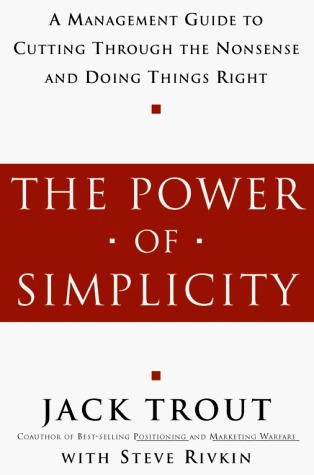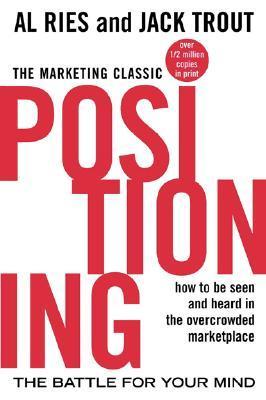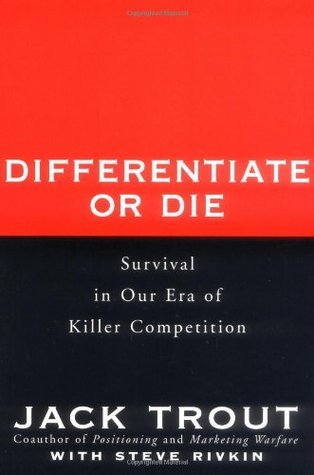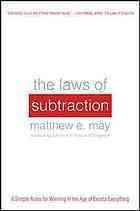
The Power of Simplicity
Book Description
Amid the chaos of a world drowning in complexity, one truth reigns supreme: simplicity is revolutionary. In “The Power of Simplicity,” Jack Trout unveils a bold manifesto that challenges the clutter of modern marketing and business strategies. With razor-sharp insights and captivating examples, he reveals how embracing simplicity can transform brands, ignite consumer connections, and drive undeniable success. Each page brims with a call to action, urging leaders to cut through the noise. Are you ready to strip away the excess and discover the profound impact that simplicity can wield in an increasingly complicated landscape?
Quick Book Summary
"The Power of Simplicity" by Jack Trout is a compelling exploration of why simplicity holds the key to business and personal success. Trout argues that in a world flooded with information and ever-evolving trends, companies and leaders often become mired in unnecessary complexity. He asserts that cutting through this noise with clear, straightforward strategies sets successful brands apart. Drawing on real-world examples and decades of marketing expertise, Trout demonstrates how stripping away superfluous processes, messages, and jargon leads to more effective communication, stronger brands, and loyal customers. Ultimately, Trout contends that simplicity is not just a strategy but a discipline—one that requires courage, focus, and consistent effort to maintain.
Summary of Key Ideas
Table of Contents
The Business Case for Simplicity
Jack Trout opens by diagnosing a critical problem facing modern businesses: the relentless march toward complexity. This complexity emerges from overthinking strategies, relying on jargon-laden messages, and layering unnecessary processes. Trout contends that this trend overwhelms both consumers and employees, diluting a company’s ability to cut through the noise. By spotlighting the rising costs—lost opportunities, muddled brands, and confused markets—he makes the business case for embracing simplicity as a foundational principle.
Clarity Over Complexity in Communication
Central to the book is the assertion that clear, straightforward communication outperforms sophisticated or nuanced messaging. Trout provides case studies of companies that thrive by reducing their core messages to their simplest, most powerful forms. He warns against the temptation to overload consumers with information or to impress stakeholders with complexity, arguing that clarity wins trust, builds brands, and ultimately drives sales. This focus on clarity is not just for customers but also within organizations, helping teams align and execute strategies more effectively.
Courage and Discipline to Simplify
Implementing simplicity is not easy in practice—it requires both courage and discipline. According to Trout, leaders must battle their own instincts to add features, processes, or messages out of fear of missing opportunities or appearing too basic. He insists that success comes from having the courage to say no, to eliminate the unnecessary, and to consistently resist the pull of complexity. This discipline separates successful brands from those who get lost in the crowd, and Trout offers practical advice and mental frameworks for leaders ready to make tough decisions in the pursuit of simplicity.
Simplicity in Leadership and Decision-Making
Simplicity also reshapes how leaders approach decision-making. Trout advocates for a streamlined process focused on essential goals, concise problem definitions, and direct action plans. By modeling this behavior, leaders create trickle-down effects that empower teams to act decisively and reduce organizational bureaucracy. This approach enhances innovation, as teams freed from unnecessary constraints are able to focus their energies on what truly matters, leading to better results throughout the business.
Simplicity as a Sustainable Competitive Advantage
Finally, Trout positions simplicity as an ongoing, sustainable competitive advantage. In a marketplace where most organizations succumb to the allure of complexity, deliberately maintaining simplicity becomes remarkable and differentiating. Successful brands that commit to simplicity not only outperform competitors but also foster greater customer loyalty. Trout’s ultimate message is a call to action: leaders who deliberately cultivate and defend simplicity will be rewarded with stronger, more sustainable success in an increasingly complex world.
Download This Summary
Get a free PDF of this summary instantly — no email required.





